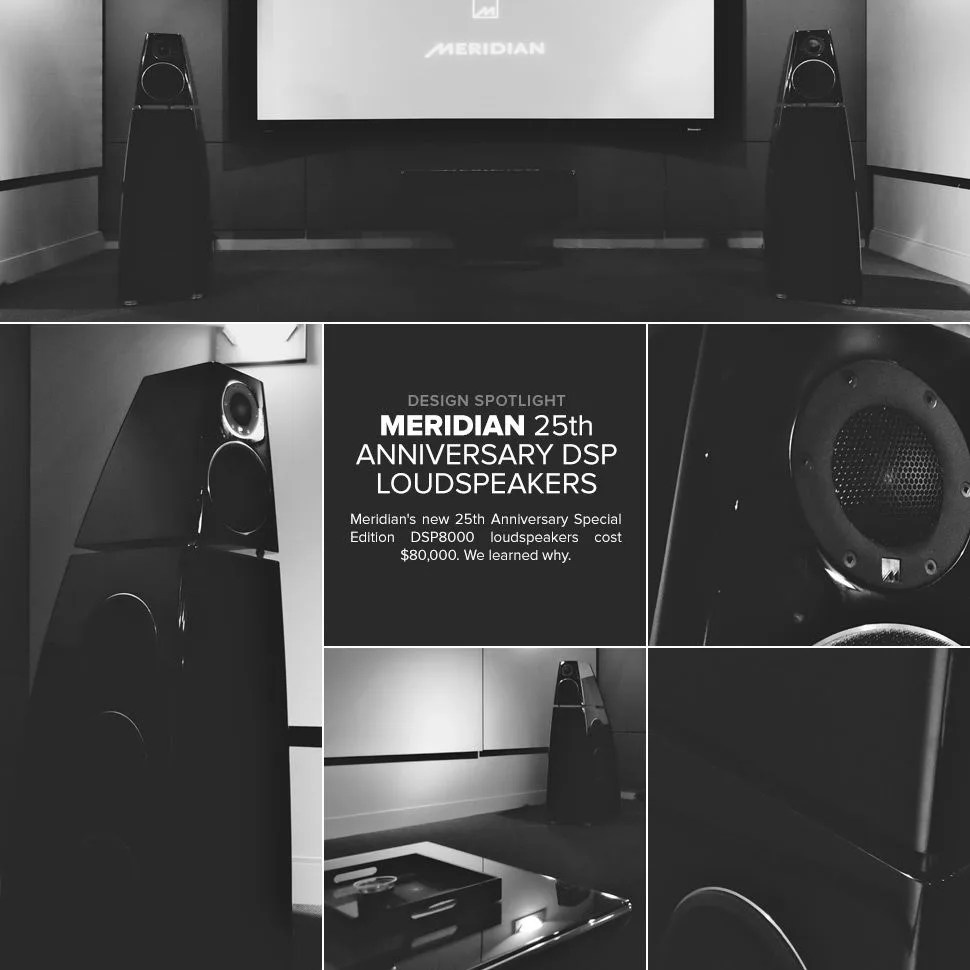Sitting in the dark of Meridian Audio’s personal theater, eyes closed, drinking in Ella Fitzgerald backed by Satchmo’s glib, saucy blowing on “They Can’t Take that Away From Me”, I thought about all the music I’d listen to on Meridian’s $80,000 speakers if I had the luxury of an entire day to sit on this Eames couch in this blackened room with acoustically dampened walls. The workaday grind would be far away, pressures of life even further. I would move only for the bathroom, and then only under dire circumstances.
MORE HI-FI EXTRAVAGANCE: Meridian’s Signature Reference System | Dolby Atmos | GP Shorts: Sennheiser HD800
Stevie Ray Vaughn first, then Beethoven. Zeppelin. Duke Ellington. The Band. Paul Simon with the Muscle Shoals Stompers. (“Loves Me Like a Rock”! — shiver.) I would host a huge series of personal concerts with an audience of one. Because that’s what it felt like, listening to Ella and Louis croon at each other: the emotion of a first row-live performance at a smoky, dark Harlem jazz club, but with clarity only recording studio mixers get to hear.
I realized that this is (hopefully) the reason 1 percenters blow $80 fucking grand on a set of speakers or why audiophiles sell their soul. It’s for the performance.
The difficult job here isn’t reviewing the Special Edition DSP8000s ($80,000), which commemorate the British brand’s first digital speaker, released 25 years ago. It’s simply hard to describe their effect. Meridian is having the same problem. “The marketing struggle we face is that words we use to describe what the speakers do have been used before…but now they’re really happening”, said Ken Forsythe, Director of Product Management at Meridian and a guy who clearly spends more time with engineers than marketers. He’s speaking in earnest.
These are speakers that have been upgraded from the brand’s flagship DSP line released 11 years ago. Like all of Meridian’s loudspeakers, they’re shaped “like the human body”, or, more realistically, in a rounded, tall pyramid shape, big on the bottom and small at the top. The result is sound emanated, with psychoacoustical precision, exactly as it is from the human body. This, Forsythe says, is the most important design aspect. “You could put every other piece of technology and design we use for these speakers in a square block and not get any of the result”, he said.
“The marketing struggle we face is that words we use to describe what the speakers do have been used before by other brands…but now they’re really happening.”
